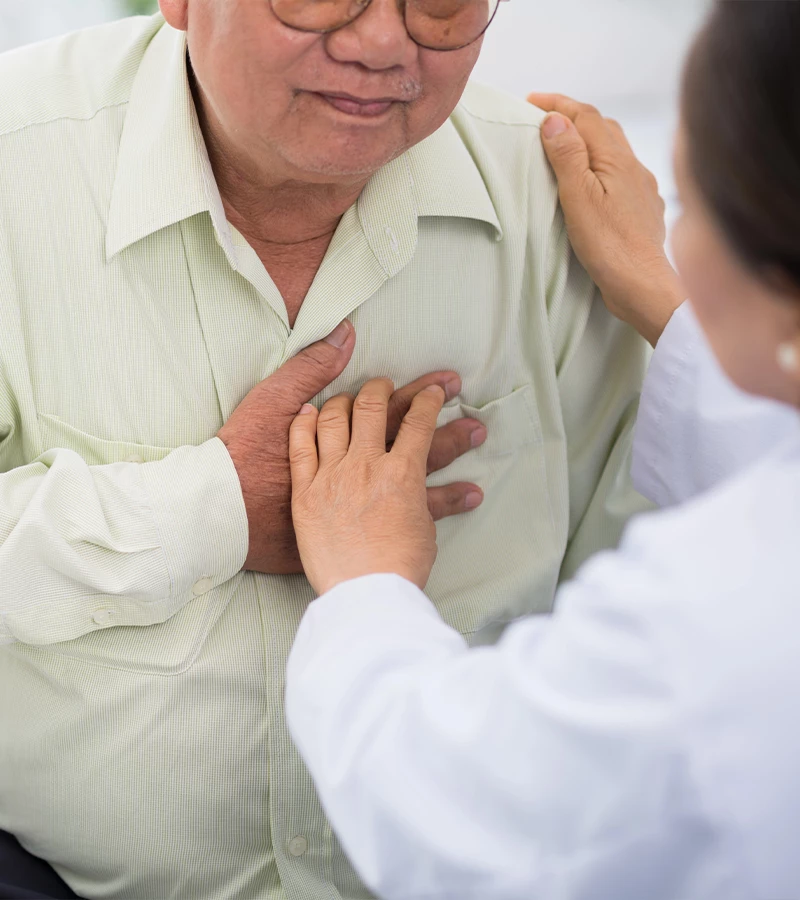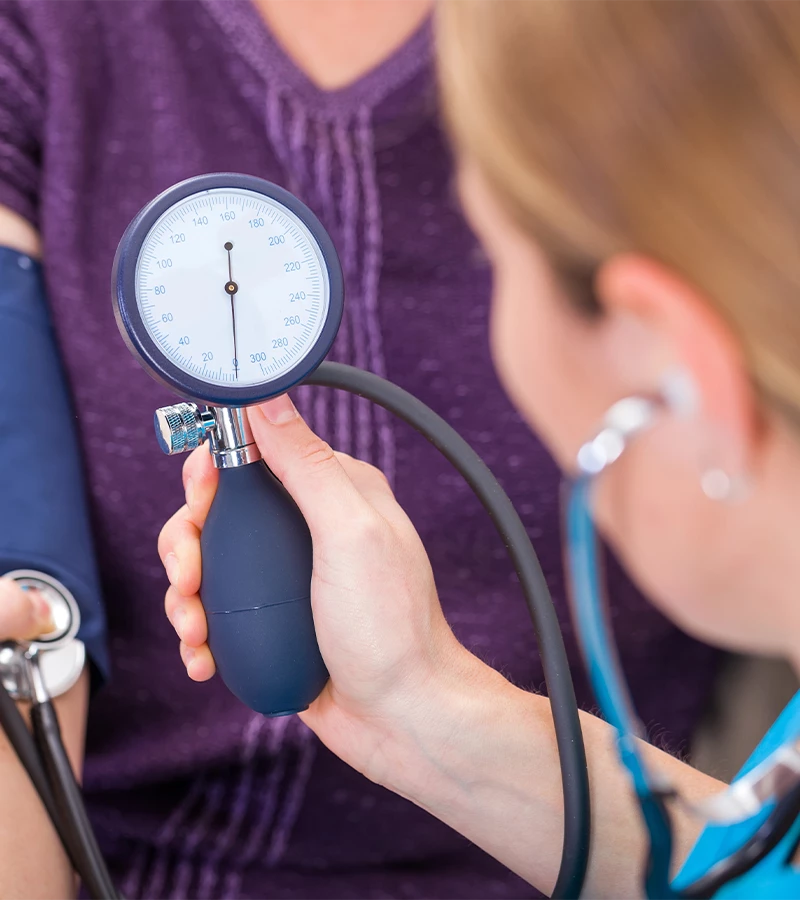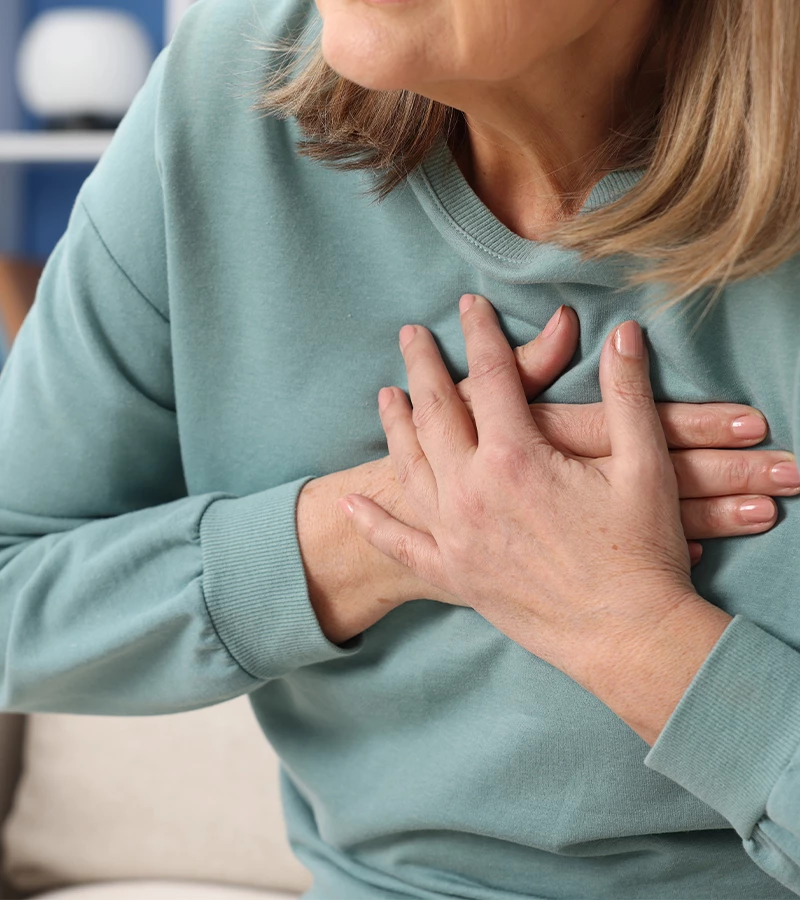Cardiovascular Issues – Chest Pain

Expert Care and Experience
Choose a clinic with experienced healthcare professionals who specialize in cardiovascular health. A knowledgeable team provides accurate diagnoses, effective treatments, and personalized care plans tailored to your needs.
Advanced Technology for Accurate Diagnostics
Opt for a clinic that utilizes cutting-edge technology to monitor and assess heart health. Tools like ECGs, blood pressure monitors, and cholesterol testing ensure precise readings for a thorough evaluation of your cardiovascular health.
Convenient and Timely Access to Care
A clinic with walk-in services or flexible appointment scheduling allows you to receive care quickly without long delays. Getting timely care can make all the difference in preventing more serious heart-related issues.
Personalized, Comprehensive Treatment Plans
Select a clinic that offers customized treatment plans, which include lifestyle modifications, medication management, and ongoing follow-ups. Tailored care will support long-term heart health management based on your individual needs.

Cardiovascular health is a crucial aspect of overall well-being, and chest pain is one of the most common symptoms that may signal underlying heart problems. Chest pain can indicate a range of conditions, some of which can be life-threatening, such as heart attacks, angina, or pericarditis. These conditions require immediate medical attention to prevent complications.
At NextGen Primary Care, we specialize in the rapid evaluation of chest pain. Whether it is a minor discomfort or a more serious cardiovascular concern, our healthcare professionals are trained to provide prompt care to identify the root cause and deliver effective treatment. Early diagnosis and intervention are key in preventing long-term complications related to heart health. Our goal is to ensure that patients receive the highest level of care, minimizing risks and improving outcomes.
How NextGen Primary
Care Can Help
NextGen Primary Care offers fast, reliable medical attention when you need it most—without the long wait times. From minor injuries and illnesses to preventive care and chronic condition management, our experienced team is here to provide compassionate,
efficient healthcare tailored to your needs.
We are here to support your heart health and provide long-term care to help you live a healthy life. At NextGen Primary Care, we offer the complete care you need for chest pain and cardiovascular health.
What is Chest Pain?
Chest pain refers to discomfort or pain in the chest area, which can be caused by a variety of conditions affecting the heart, lungs, esophagus, and other organs located within the chest. It is one of the most common symptoms people experience, and while it is often associated with heart disease, chest pain can also stem from a wide range of non-cardiac causes.
The intensity of chest pain can vary greatly, ranging from a mild discomfort to a severe, crushing sensation. Some people may experience tightness, pressure, or a sharp, stabbing pain, while others may feel a burning sensation. Regardless of the type or intensity, it is important to pay attention to chest pain, as it may be a sign of a serious condition that requires immediate medical attention.

Symptoms of Chest Pain
Chest pain can manifest in many different ways, and the symptoms you experience may help determine whether the cause is heart-related or related to another condition. Here’s a breakdown of common chest pain symptoms:

Treatment for Chest Pain
The treatment for chest pain depends on the underlying cause. It’s important to receive the right treatment promptly to address either heart-related or non-heart-related causes of chest discomfort. Here’s a breakdown of treatment options for chest pain.
A. Immediate Treatment for Cardiac Causes
B. Non-Cardiac Treatment Options
When to Seek Medical
Help for Chest Pain
Chest pain can be a symptom of a variety of conditions, some of which may require urgent medical attention. It’s important to recognize when chest pain might signal a life-threatening issue. Here’s when you should seek immediate medical care:
Common Causes of Chest Pain
Understanding the various causes of chest pain is crucial for determining the appropriate treatment. While heart-related issues should always be taken seriously and treated promptly, many non-cardiac causes are also treatable with the right medical care.
If you experience chest pain, especially if it is severe or accompanied by other symptoms such as shortness of
breath or dizziness, seek medical attention immediately to ensure the best possible outcome.
Immediate Care for Chest Pain: Why
Timely Evaluation Matters
hest pain can manifest in many different ways, and the symptoms you experience may help determine whether the cause is heart-related or related to another condition. Here’s a breakdown of common chest pain symptoms
Preventive Measures for
Chest Pain
Prevention plays a vital role in reducing the risk of chest pain and maintaining overall heart health.
At NextGen Primary Care, we emphasize the importance of:
By staying on top of your health with regular screenings, we can catch potential issues early and help prevent
chest pain or heart disease before they develop into more serious conditions.
Frequently Asked Questions
Patient Testimonials
At NextGen Primary Care, our patients are at the heart of everything we do. We’re deeply grateful for the trust they’ve placed in us, and we’re honored to hear about the positive experiences they’ve had with our compassionate care, quick service, and dedicated team. Here’s what a few of our patients have shared about their time with us:
Contact Us
At NextGen Primary Care, we understand the importance of accessible healthcare, which is why we offer convenient hours and flexible scheduling. Our clinic is here to serve you, whether you need urgent care, primary care, or specialized treatment.
Address
6306 Gulfton St #203,
Houston, TX 77081
Consultation Schedule
Mon – Wed: 9:00AM – 7:00PM
Thu – Fri: 9:00AM – 6:30PM
Sat: 9:00AM – 4:30PM
Get in Touch
Phone: 281-888-7289
Email: info@nextgenpcp.com
Follow Us
Walk In Anytime. We’re Ready
Whether it’s a sudden illness, minor injury, or something that just can’t wait — we’re here to provide fast, compassionate care when you need it most. No long waits, no unnecessary stress
— just quality healthcare, right when it matters.
Same-day care
without long wait times
Personalized attention
to women’s health needs
On-site diagnosis
and treatment by experienced professionals


















